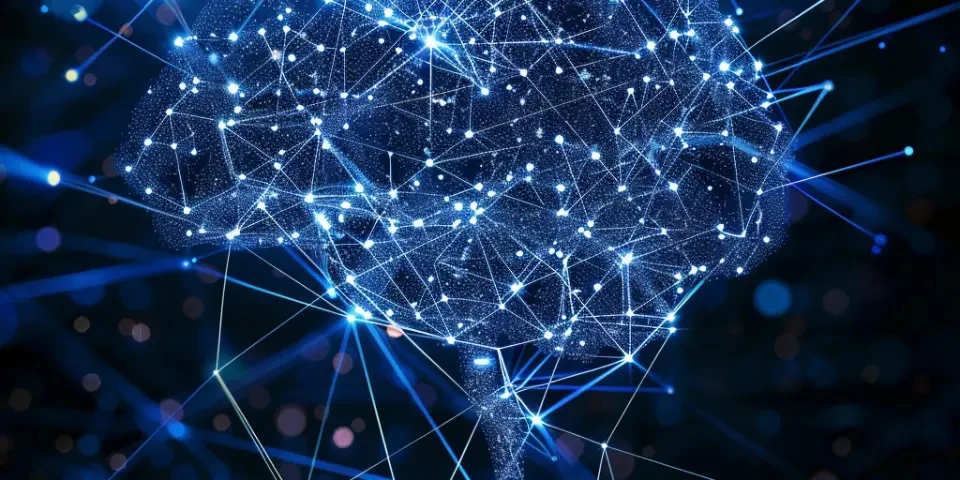AI-powered learning Transforming education for the modern user
Artificial Intelligence (AI) has revolutionized numerous industries, and it is now making its mark on education. AI-powered learning is transforming the way we access, consume, and process educational content. By leveraging the power of AI technology, education is becoming more personalized, interactive, and efficient. In this article, we will explore how AI is reshaping education for the modern user from various perspectives.
1. Personalized Learning
AI-powered learning platforms use machine learning algorithms to analyze student data and provide personalized learning experiences. Through adaptive learning pathways, AI can identify individual strengths and weaknesses, allowing students to focus on areas that require improvement. Personalized learning ensures that students receive tailored content and resources, optimizing their educational journey.

Additionally, AI-powered platforms offer personalized feedback and recommendations, enabling students to track their progress and make necessary adjustments. This level of individualization enhances student engagement, motivation, and overall academic performance.
2. Intelligent Tutoring Systems
Intelligent Tutoring Systems (ITS) combine AI and educational methodologies to create virtual tutors that provide personalized guidance to students. These systems can track and analyze student interactions, understand their learning patterns, and deliver targeted interventions.
By adapting to the student's needs, ITS offer real-time feedback and support, simulating the experience of a human tutor. The use of natural language processing allows students to communicate with these virtual tutors through speech or text, enhancing the learning experience and fostering engagement.
3. Efficient Content Creation
AI-powered tools are revolutionizing content creation in the education sector. Natural Language Processing (NLP) algorithms can automate the creation of educational materials, saving time and effort for educators. These tools can generate quizzes, exams, and interactive lessons, ensuring a constant supply of high-quality content.
Moreover, AI algorithms can analyze vast amounts of data to identify knowledge gaps, ensuring that content is up-to-date and comprehensive. This streamlining of content creation allows educators to focus more on fostering critical thinking and creativity in students.
4. Intelligent Assessment and Grading
AI-powered assessment tools can evaluate student performance more efficiently and accurately. Machine learning algorithms analyze responses and provide instant feedback, eliminating the need for manual grading. This not only saves time for educators but also allows students to receive immediate feedback, fostering a deeper understanding of their strengths and weaknesses.
Furthermore, AI algorithms can identify patterns in student responses and assess the effectiveness of teaching methodologies. This data-driven approach enables educators to make informed decisions regarding curriculum design and teaching strategies.
5. Virtual Reality and Immersive Experiences
AI technology, combined with virtual reality (VR), is transforming traditional learning environments into immersive experiences. Virtual reality simulations enable students to engage in hands-on learning and experience real-life scenarios in a controlled environment.
For example, medical students can practice surgical procedures in virtual operating rooms, enhancing their practical skills. VR-based history lessons allow students to visit historical events and interact with important figures, making the learning process more engaging and memorable.
6. Intelligent Course Recommendations
AI-powered recommendation systems analyze student data, including past performance and interests, to suggest relevant courses and learning materials. These personalized recommendations help students explore diverse subjects and discover new areas of interest.
Additionally, these systems can provide career guidance by aligning students' skills and interests with potential job opportunities. This guidance empowers students to make informed decisions about their educational and professional paths.
7. Enhancing Accessibility and Inclusivity
AI-powered learning tools have the potential to address accessibility and inclusivity challenges in education. Natural language processing allows speech-to-text transcription, enabling students with hearing impairments to follow lectures. Text-to-speech functionalities assist visually impaired students in accessing educational content.
Furthermore, AI-powered platforms can offer translation services, breaking language barriers and facilitating learning for students from diverse linguistic backgrounds. These advancements in accessibility ensure that education is more inclusive and equitable for all.
8. Overcoming Language Barriers
Language barriers can hinder global educational opportunities. However, AI-powered language learning platforms are bridging this gap by offering personalized language courses.
These platforms leverage AI algorithms to track individual progress and identify weak areas. They provide interactive lessons, speech recognition, and real-time language practice, allowing students to learn at their own pace. Such AI-powered language learning tools are invaluable in promoting cross-cultural communication and global collaboration.
Frequently Asked Questions
Q: Can AI completely replace human teachers?
A: AI cannot replace human teachers entirely. While AI-powered tools enhance the learning experience, teachers play a crucial role in providing guidance, motivation, and emotional support.
Q: Will AI-powered learning platforms be accessible to all students?
A: Efforts are being made to ensure that AI-powered learning platforms are accessible to all students. These platforms are incorporating features for students with disabilities and offering translation services to overcome language barriers.
Q: Are AI-powered tools secure for student data?
A: AI-powered learning platforms prioritize data security and adhere to strict privacy regulations. It is crucial for educational institutions to choose reputable platforms that prioritize the privacy and security of student data.
References:
- Sangin, M., & Dabaghi, A. (2020). Artificial Intelligence in Education. In Handbook of E-Learning Strategy Design (pp. 145-156). Springer.
- Siemens, G., Ga?evi?, D., & Dawson, S. (2015). Preparing for the digital university: A review of the history and current state of distance, blended, and online learning. Athabasca University.
- Wang, F., & Hannafin, M. J. (2005). Design-based research and technology-enhanced learning environments. Educational Technology Research and Development, 53(4), 5-23.
